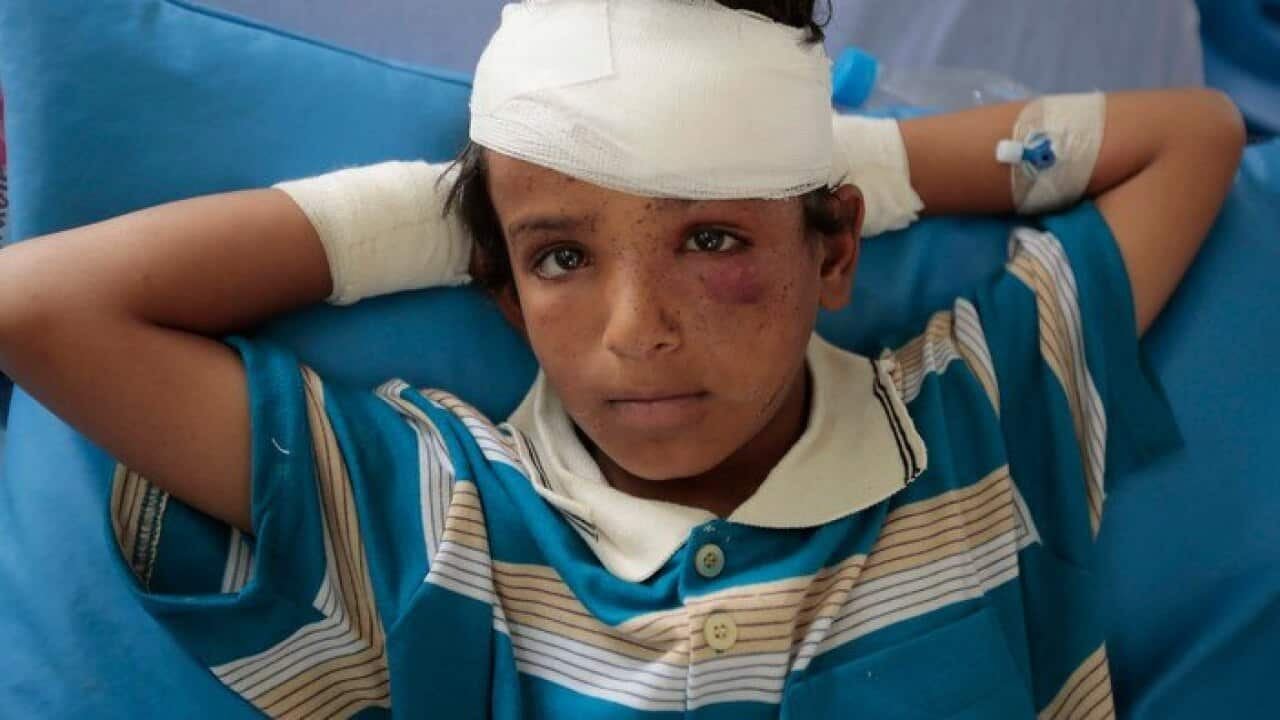A Saudi-led coalition has begun a unilateral ceasefire in , saying it hoped the initiative to prevent coronavirus in the impoverished country would lead to a wider political solution.
The Iran-backed Huthi rebels have not made any comment on the coalition's declaration of a two-week pause in the five-year conflict.
If the ceasefire does hold, it would be the first breakthrough since the warring parties agreed to an UN-brokered ceasefire in the port city of Hodeida during talks in Sweden in late 2018.
The United Arab Emirates, a key ally in the coalition which drew down its troops last year as the conflict became increasingly intractable, applauded the Saudi move as "wise and responsible". "Hope the Huthis rise to the occasion. The COVID-19 crisis eclipses everything - the international community must step up efforts and work together to protect the Yemeni people," UAE Minister of State for Foreign Affairs Anwar Gargash tweeted.
"Hope the Huthis rise to the occasion. The COVID-19 crisis eclipses everything - the international community must step up efforts and work together to protect the Yemeni people," UAE Minister of State for Foreign Affairs Anwar Gargash tweeted.

A Yemeni man pushes a wheelbarrow with water-full jerrycans after filling them from a charity tap amid concerns over the spread of the coronavirus. Source: EPA
"It is an important decision that must be built on, on both humanitarian and political levels," he added.
The conciliatory gesture follows an escalation in fighting between the warring parties despite a call by the United Nations for an immediate cessation to protect civilians in the Arab world's poorest nation from the pandemic.
Saudi Arabia, which launched its military intervention to support Yemen's internationally recognised government in March 2015, said on Wednesday that the truce, which could be extended, could pave the way for a wider political solution. Officials indicated they are keen for a UN-sponsored face-to-face meeting with the rebels to achieve a permanent ceasefire.
Officials indicated they are keen for a UN-sponsored face-to-face meeting with the rebels to achieve a permanent ceasefire.

A man and his children pass a cemetery of people allegedly killed in the ongoing fighting. Source: EPA
But hours before the announcement, the Huthis released a comprehensive document that called for a withdrawal of foreign troops and the end of the coalition's blockade on Yemen's land, sea and air ports.
They also demanded that the coalition pay government salaries for the next decade, and hand over compensation for the rebuilding of the country including homes destroyed in airstrikes.
'Utmost urgency'
UN special envoy Martin Griffiths welcomed the truce, calling on the parties to "cease immediately all hostilities with the utmost urgency".
The ceasefire comes as Saudi Arabia, reeling from plunging oil prices, seeks to extricate itself from the costly conflict that has killed tens of thousands of Yemeni people and triggered what the UN calls the world's worst humanitarian crisis.
Saudi deputy defence minister Prince Khalid bin Salman on Wednesday called on the rebels to "show goodwill" by seriously engaging in dialogue.
"The two-week ceasefire will hopefully create a more effective climate to deescalate tensions, work with (Griffiths) towards a sustainable political settlement," Prince Khalid said on Twitter.
Yemen's broken healthcare system has so far recorded no cases of the COVID-19 illness, but aid groups have warned that when it does hit, the impact will be catastrophic.
Saudi Arabia, the Yemeni government and the Huthi rebels had all welcomed an appeal from UN Secretary-General Antonio Guterres for an "immediate global ceasefire" to help avert disaster for vulnerable people in conflict zones.
"It is most important to watch if the Huthis will stop their military operations," said Fatima Abo Alasrar, a scholar at the Middle East Institute.
"That will be the real litmus test of a successful ceasefire as the Huthis have currently opened multiple battlefronts they cannot afford to close."
Fighting recently escalated again between the Huthis and Riyadh-backed Yemen government troops around the strategic northern provinces of Al-Jouf and Marib, ending a months-long lull.
And Saudi air defences intercepted Yemeni rebel missiles over Riyadh and the border city of Jizan late last month, leaving two civilians wounded in the curfew-locked capital, state media reported.
It was the first major assault on Saudi Arabia since the Huthi rebels offered last September to halt attacks on the kingdom after devastating missile and drone strikes on Saudi oil installations.
Last week, the coalition carried out multiple air strikes on Yemen's rebel-held capital Sanaa in retaliation for the missile strikes.



